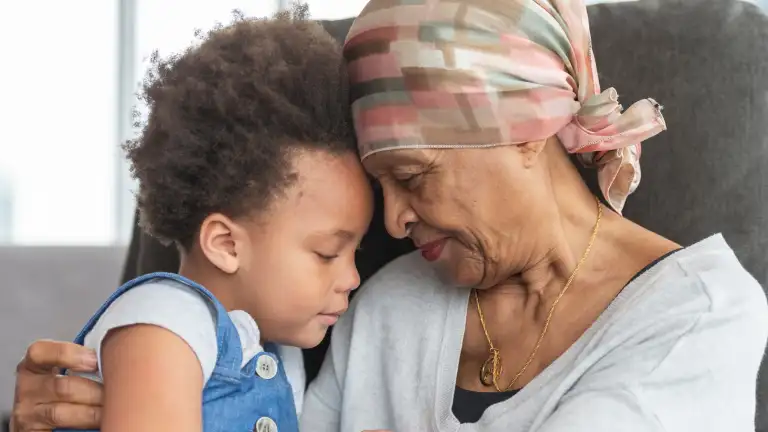
Can I decline CPR if I'm approaching the end of life?
If you’re approaching the end of life, or are responsible for someone who is, there are a number of options for care. There are also practical steps you can take to prepare for what lies ahead. Learn how to make sure your end-of-life decisions reflect your wishes, or those of your loved one.
What you should know
“Mom knows she doesn’t have much time left. She’d like to be at home when she dies, alongside those close to her. It’s made me realize that we all have different ideas of what a ‘good death’ is. When his time came, Dad insisted he stay at the hospital. He wanted to receive any life-prolonging treatments til the very end.”
– Cameron, Lions Bay, BC

End-of-life care describes the care someone receives as they’re approaching death. Many people will need care for days, weeks, or months before they die.
There are many decisions to be made at the end of life. These include the kind of care you’d like and where you’d like to receive it. These decisions should reflect your values, beliefs, and wishes.
Advance care planning is a process where you think about what you want for yourself, and share those thoughts. In BC, this may involve:
Having conversations. Discuss your values and preferences with your health care providers, caregivers, and family. The goal is to reach a shared understanding of what matters most to you in end-of-life care.
Preparing an advance directive. An advance directive is a legal document that records your wishes around accepting or refusing specific health care treatments. It’s most useful when someone has a specific diagnosis or is at end-of-life.
Choosing someone to make decisions for you. You can hand-pick a representative to guide your end-of-life care if you become mentally unable to do so yourself. You can do this by preparing a representation agreement.
“I’ve been diagnosed with advanced stomach cancer. My doctor explained the treatment options: chemo and radiation, surgery, or doing nothing except pain management. I don’t want to go through with chemo or surgery. I’ve seen loved ones take this path; the side effects are brutal. I’ve decided I want to live out my last days with gratitude. This way, I can focus on what brings me joy and pleasure every day. And I want to be as comfortable as I can while doing this.”
– Pascal, North Burnaby, BC

You have the right to choose the care you want at the end of your life. And you have the right to say no to medical treatment, even if it could prolong your life. You also have the right to stop treatment you’ve started. Talk to your doctor about each option you’re being offered. How will it impact your quality of life? What are the benefits and risks? What’s the probability of success?
You may decide you don’t want certain treatments or procedures. Be aware that you can still receive care that will manage your pain and make you comfortable.
You should also learn about life support measures that might be offered to you as the end approaches. These include CPR, feeding tubes, and breathing machines. The BC government has a supported-decision-making tool called “Should I receive CPR and life support?” It lets you compare options and reflect on what’s important to you.
End-of-life care isn’t just about medical treatments
Think about what’s important to you. Do you want a lot of people around or just a few? What makes you feel good? Would you like a massage? Are there certain comfort foods you’d like to eat? Telling loved ones what you want and need can help them care for you.
Cardiopulmonary resuscitation (CPR) is an emergency procedure that can be performed if your heart or lungs stop. Some people decide they don’t want that.
This decision to decline emergency medical procedures can be recorded in a no CPR form. The form is a medical order. It says the person has had a conversation with a health care professional about CPR. It tells people such as first responders, paramedics, and care providers not to start CPR. This applies whether the person is at home, in the community, or in a care facility.
Signing this form isn’t a decision to be made lightly. Talk to close family and friends and your doctor to see if it’s a good option for you. The answer will depend on your unique circumstances.
More on the no CPR form
The no CPR form was created by the BC Ministry of Health. There’s no law in BC that governs the creation and use of the form. The reality is the form is widely used in the BC health care system, and honoured by health care providers.
Think about where you’d like to spend the last days, weeks, or months of your life. For some people, a hospital is a reassuring place to be. Others choose to be cared for at home or in a nursing home.
If you’re nearing the end of your life, you may choose to receive hospice palliative care. This approach focuses on the quality of your life rather than treatment to prolong it. Apart from medical care, you (and your family) receive emotional and spiritual support. Caregivers may also provide practical help, like running errands or fixing meals. You can receive hospice palliative care in your home or in a hospital, care home, or hospice centre.
The cost may be covered
Check if the costs of hospice palliative care will be covered by your provincial health plan or private insurance plan.
You can choose to die at home
In BC, you can plan to die at home with your family and caregivers. Your community nurse and family physician are often the best people to assist you with planning for a home death.
If you go this route, the notification of expected death in the home form should be completed. This form authorizes the funeral home to remove your body from the home without pronouncement of death by a health care professional.
Without the form, a health care professional must pronounce death before a funeral home will transport your body.
If you, or someone you know, has a terminal illness and wants to plan for an expected death at home, see the BC government page on expected and planned home deaths.
Medical assistance in dying occurs when an authorized doctor or nurse practitioner helps someone end their life. This is done by providing or administering medication.
Medical assistance in dying is legal in Canada, but it’s only available to eligible patients. This BC government page explains the criteria for eligibility. For example, you must be able to consent to the procedure. You can’t ask someone else now to authorize the procedure on your behalf at a later date, and you can’t consent to it in an advance directive.
The BC government page also tells you who to contact to request information on medical assistance in dying, depending on where you are in BC.
Organ donation is another important decision to consider at the end of life. Your organs can help save lives. If you haven’t already done so, you can register as a donor with the BC Organ Donor Registry administered by BC Transplant. (In BC, a decal on your driver’s licence is not an official or legal record.)
You can specify particular organs and tissues to donate. Or you can donate your whole body, as needed — for transplant, research, or educational purposes.
Steps to plan
Choose what level of advance care planning you’d like to do. Learn as much as you can about the treatments available to you at end of life. This will help you make informed decisions. To get started, see our page on preparing an advance care plan.
If you’ve decided to decline CPR or other emergency medical procedures, complete the no CPR form. It’s available online or from a health care professional’s office. It must be signed by a consenting adult (either the person approaching the end of life or their substitute decision-maker), plus their doctor or nurse practitioner.
Keep the no CPR form with you
Put the signed no CPR form on the fridge at home so it can be easily seen. When away from home, carry the form with you. You can also get a free MedicAlert® bracelet with No CPR engraved on it. To obtain a free bracelet, call 1-800-668-1507 or visit the MedicAlert® website.
Communicate your wishes for care, and your values, with the key people in your life. Have these conversations with:
your family and those who are close to you
anyone who might be asked to make an end-of-life decision for you (if you’re not able)
your health care providers
It’s not always easy to talk about these kinds of things, but it’s important. It’ll help ensure you receive the care you want.
Think about who you’d like to have your property when you’re gone. The best way to ensure your wishes are followed is to prepare a will. We explain what's involved. You can prepare a simple will yourself, or get help from a lawyer or notary public.
Decide whether to register as a donor with the BC Organ Donor Registry administered by BC Transplant. (You can also register a “No” on the site. This will prevent your family from unwittingly approving an organ donation you didn’t want.)
You don’t have to be perfectly healthy to donate an organ — it’s the health of the organ that matters. There’s no age limit to register. Talk with your doctor or contact BC Transplant if you have questions.
It's best to put your wishes in your will
Under the law, a donor’s consent to organ donation is binding. But if someone believes the donor changed their mind, the consent can’t be acted on — unless the donor expressed consent in their will. BC Transplant’s practice is to “ask the family if they are aware of any change in their loved one's decision, and will honour their wishes.”
If you feel strongly about donating (or not donating) your organs, write your wishes in your will. Then tell your family and those close to you that you have done so and why. This is an important step, because it may be difficult to produce a will in the heat of the moment. It will help prevent delays and misunderstandings.
You can make funeral plans in advance with a funeral home. Pre-arranging a funeral can help reduce financial and emotional stress after your death. For information on funeral homes in your area, contact the BC Funeral Association.
Communicate your preferences with family and those close to you
Be aware that your own wishes for the kind of funeral or memorial service you want won’t be binding on whoever’s arranging it. Even if you write those wishes into your will.
But if you write your preference for burial or cremation in your will, that preference is binding. (Except if following it would be unreasonable, impracticable, or cause hardship.) The same applies if you set out your preference for burial or cremation in a contract for cemetery or funeral services. If you say what you want in another way, such as through a letter or simply telling a loved one, that’s not legally binding.
The bottom line is: if your loved ones know your wishes, they’re more likely to follow them. For example, a green (eco-friendly) burial might be important to you. Or perhaps you’d like a favourite song played at your memorial.
If you’re planning an expected death at home, have your doctor fill out the notification of expected death in the home form. It authorizes the funeral home to remove the body from the home without pronouncement of death by a health care professional. The form should be sent to the funeral home before the death.
If you’re approaching the end of life, consider writing a short plan. This helps family, friends, and others respect your wishes and know what to do at the time of death.
The written plan should include:
Medical contacts. How the family doctor or nurse practitioner can be reached, and who to contact if they are unavailable.
Pronouncing death. Who will pronounce death, if pronouncement is planned.
Funeral home. Which funeral home will be called to transport the body.
Legacy work. You may want to prepare letters, notes, or special gifts to be given to loved ones after you’ve passed away.
Common questions
A MOST — medical order for scope of treatment — form is a document used in hospitals, residential care, and community care settings. It should be used to start a conversation with your doctor about your values and wishes for care. You may encounter a MOST when you’re chronically ill or near end of life, and major health care decisions are looming.
Legally, MOST forms do not substitute for consent. Even if you have a MOST, you must give your consent to medical treatment directly. (There are some exceptions in emergency situations.) If you’re incapable of giving consent, health care providers need to get consent from your substitute decision-maker or your latest advance directive. Otherwise, they can’t treat you. What’s written in a MOST form should never override this consent process.
Who can help
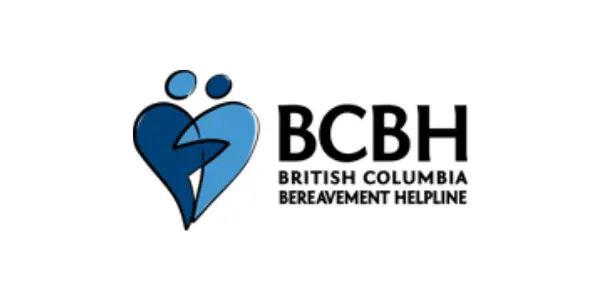
BC Bereavement Helpline
A non-profit society that helps people in BC cope with grief.
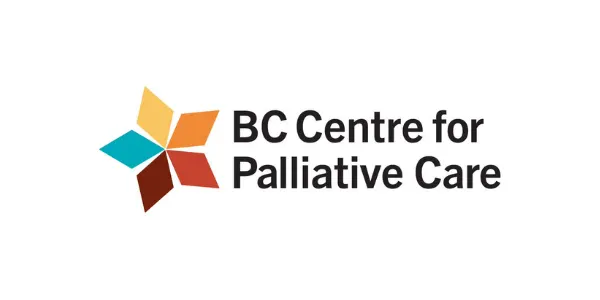
BC Centre for Palliative Care
Provides resources for individuals and families to understand palliative care and advance care planning.
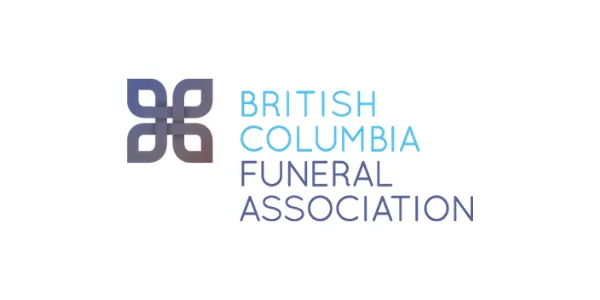
BC Funeral Association
A non-profit, membership organization that provides information about funeral services in BC.
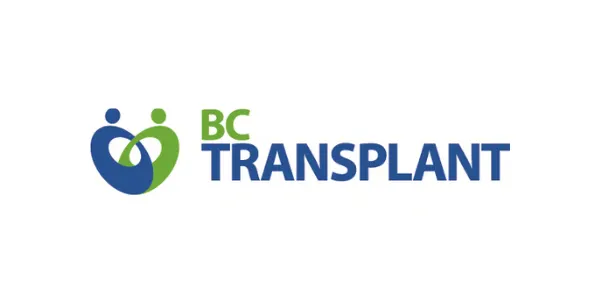
BC Transplant
A provincial agency that oversees organ donation and transplantation in BC.

